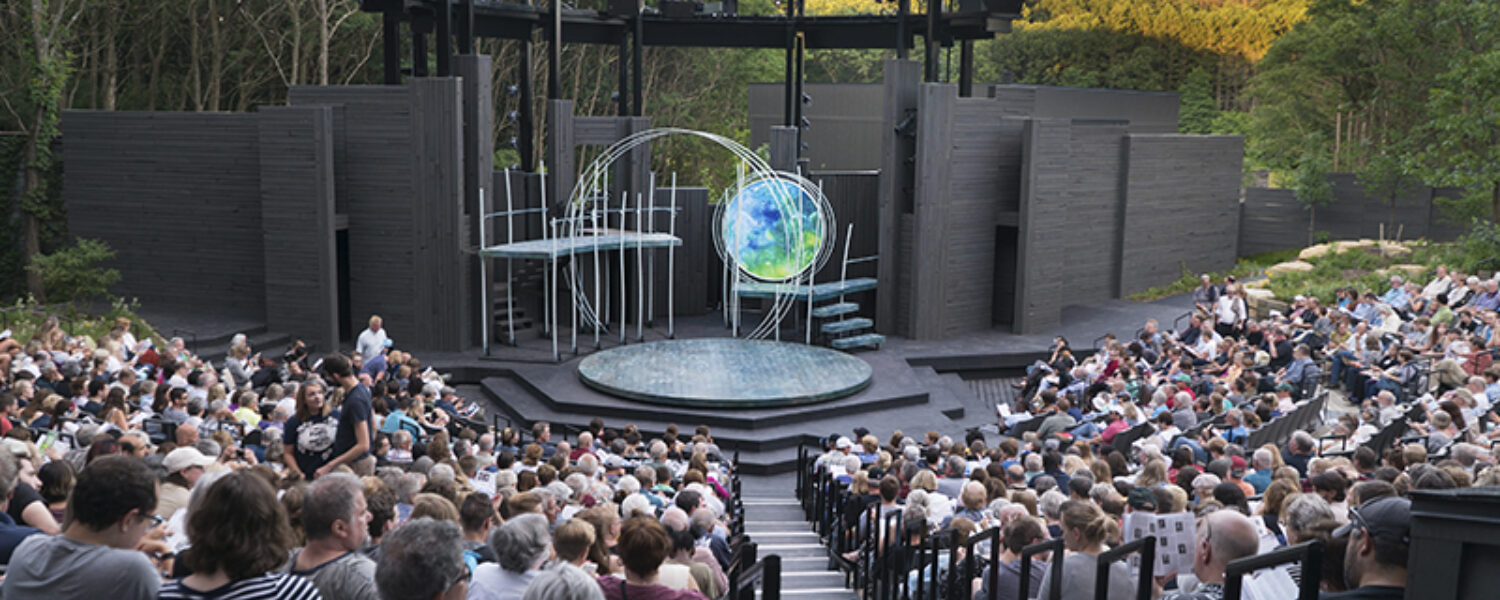Contact Us
American Players Theatre
5950 Golf Course Road
P.O. Box 819
Spring Green, WI 53588
(Map)
Box Office: 608-588-2361
Administration: 608-588-7401
Fax: 608-588-7085
American Players Theatre
5950 Golf Course Road
P.O. Box 819
Spring Green, WI 53588
(Map)
Box Office: 608-588-2361
Administration: 608-588-7401
Fax: 608-588-7085

By Victor Gluck, TheatreScene.net
Three hours north of Chicago and 40 miles west of Madison, Wisconsin, the American Players Theatre has been the Midwest’s summer theater destination for almost four decades. Founded in 1980 by actor Randall Duk Kim, director Anne Occhiogrosso and Charles Bright, APT was begun on a 110 acres plot of land in the rolling hills of Wisconsin near Spring Green as a classical summer theater presenting uncut Shakespeare. Since 1990, APT has eschewed uncut productions for something more user friendly.
Having added the 200-seat indoor Touchstone Theatre in 2009 to the outdoor Hill Theater with a capacity of 1,089, the season which began on June 14 now runs until November 18. It currently serves 110,000 patrons annually, one of the largest audiences for classical outdoor theater in the United States. Another perk of visiting the neighborhood is to tour Taliesin East, Frank Lloyd Wright’s fascinating private home as well as his school for architects, both of which are only one mile away from the theater.
Since the advent of the second theater, APT produces nine plays a year. In recent years the programming has included pairs of plays that are linked in some way. This year there are two intriguing sets: George Farquhar’s 1706 The Recruiting Officer paired with Timberlake Wertenbaker’s 1988 Our Country’s Good about the historic staging of this play by the inmates of the penal colony of New South Wales, the first theatrical presentation to be staged in Australia; and Bernard Shaw’s 1920 Heartbreak House paired with John Morogiello’s 2006 Engaging Shaw depicting Shaw’s own wooing of Charlotte Payne-Townsend who eventually became his wife. Previous ingenious pairings have included Hamlet with Tom Stoppard’s Rosencrantz and Guildenstern Are Dead, an alternate version of Shakespeare’s play told from the point of view of two of the minor characters, and The Importance of Being Earnest with Stoppard’s Travesties which incorporates scenes from Oscar Wilde’s play.